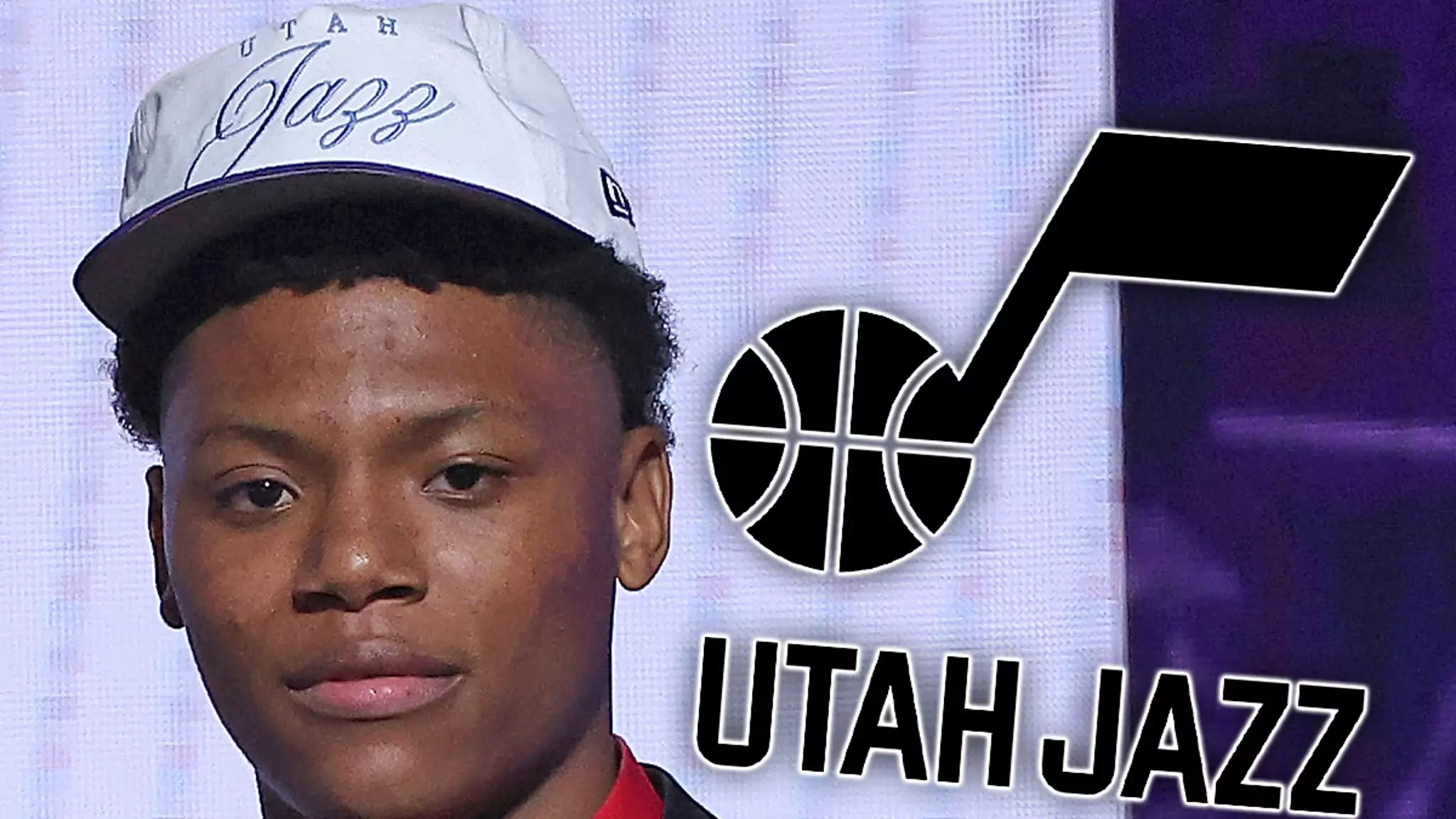The NBA Draft is a time of hope and ambition for athletes, yet it can also reveal the underlying tensions between player preferences and team selections. Ace Bailey, a standout from Rutgers, exemplifies this dichotomy when he was selected fifth overall by the Utah Jazz. Reports suggested he had reservations about being drafted by the Jazz, who finished at the bottom of the Western Conference last season. Bailey’s initial reluctance raises pertinent questions about how players reconcile their aspirations with the realities of the draft.
A Blessing in Disguise?
Despite his prior sentiments, upon meeting the media post-draft, Bailey was surprisingly upbeat, labeling his selection by Utah a “blessing.” The contrast between his previous feelings and his public demeanor suggests an adaptability that is essential for any professional athlete. Upon reflection, Bailey stated, “I can control what I can control,” which highlights an important mindset in professional sports. Acceptance of circumstances is crucial for growth, and it’s clear he’s determined to focus on his development rather than get bogged down by external expectations.
The Weight of Expectations
Social media reactions and sports commentators suggested that Bailey’s on-stage demeanor might indicate dissatisfaction. This observation points to the scrutiny athletes face, not just from analysts but also from fans eager to read between the lines. Given his refusal to workout for any teams—an unusual decision that has raised eyebrows—Bailey’s commitment to his game speaks volumes. He opted instead to concentrate on honing his skills, indicating a strategic mindset.
Organizational Confidence
In the wake of the draft, the Jazz’s front office, particularly president of basketball operations Austin Ainge, expressed strong support for Bailey as a fit for their future. Their affirmation serves as a reminder of the symbiotic relationship between player and organization. While Bailey may not have had the Jazz atop his wishlist, Ainge’s confidence in him suggests a potential for alignment that can lead to success on the court. Such endorsements are vital as they can significantly influence a rookie’s transition into the NBA.
Beyond Draft Night
As Bailey embarks on this new chapter, he faces challenges that extend beyond personal sentiments about the team and its performance history. The fact that he could have slid down the draft order, similar to other notable prospects, should instill a sense of gratitude. Bailey’s focus should not just be on proving doubters wrong, but rather on cultivating his own brand of greatness. The narrative surrounding him is not just about initial reluctance; it’s about how he will utilize this “blessing” to build a promising career.
In the rapidly changing landscape of professional basketball, the ability to adapt and grow is crucial. For Ace Bailey, his journey is just beginning, and the road ahead will test not only his skills but also his resilience in the face of adversity.

